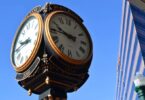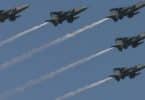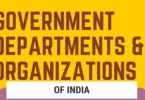Online Practice Quiz Questions on Indian Parliament (Lok Sabha and Rajya Sabha):
The Public Accounts Committee has members from
(a) House of the People
(b) Council of States only
(c) State legislatures
(d) Both Houses of Parliament
The Parliament has power in which one of the following cases –
(a) to quash a decision of a court
(b) to oust judicial review
(c) to delegate legislative power
(d) recommend appointment of judges
The General Budget is presented in the parliament normally in the month of
(a) January
(b) February
(c) March
(d) Last month of the year
Who summons the joint sitting of the Rajya Sabha and Lok Sabha?
(a) President
(b) Speaker of the Lok Sabha
(c) Chairman of the Rajya Sabha
(d) Prime Minister
Vice President because of his position in _______ becomes its Chairperson
(a) Political Party
(b) Rajyasabha
(c) Member of Parliament
(d) Loksabha
Related: non-verbal reasoning analogy questions
The sequence of procedure for passing a Bill in the House is
(a) First reading, Committee stage, report stage, second reading, third reading
(b) First reading, second reading, committee stage, report stage, third reading
(c) First reading, second reading, third reading, Committee stage, report stage
(d) First reading, Committee stage, second reading, third reading
As per Constitution, Parliament consists of how many houses?
(a) 2
(b) 3
(c) 4
(d) 6
One house of Parliament is not capable to form the ____
(a) Law
(b) Decisions
(c) Statements
(d) Ordinance
A member of the Parliament formally loss his membership if he consecutively abstains in himself from ___ sitting of the House
(a) 15
(b) 30
(c) 60
(d) 90
Who was appointed as the first woman Secretary General of the Lok Sabha?
(a) Maneka Gandhi
(b) Snehlata Shrivastava
(c) Meenakshi Lekhi
(d) Sonia Gandhi
Related: number of countries in Africa
Who presides over the joint session of the Parliament?
(a) Speaker
(b) Deputy Chairman
(c) President
(d) Vice President
The total number of Loksabha members is ____
(a) 500
(b) 552
(c) 524
(d) 530
The final authority with regard to passage of a money bill rests with
(a) Lok Sabha
(b) Rajya Sabha
(c) President
(d) Finance Minister
The Head of the government under a Parliamentary government enjoys
(a) Real power
(b) nominal power
(c) limited power
(d) no power
Related: Legal Aptitude
The Practice of ‘zero hour intervention’ in Parliament originated in India in
(a) 1962
(b) 1975
(c) 1964
(d) 1984
The watchword of a Parliamentary government is
(a) Stability
(b) checks and balances
(c) Political homogeneity
(d) responsibility
The members of the Council of Ministers are collectively responsible to
(a) Judiciary
(b) House of the People
(c) Council of States
(d) The President
Rajyasabha is a _____ House.
(a) Temporary
(b) Time being
(c) Permanent
(d) None of these
Sine Die is associated with the power of the
(a) President
(b) Speaker
(c) Chief Justice
(d) Prime Minister
Related: Passive Voice Questions and Answers
Majority provisions of the Constitution of India can be amended by
(a) The Parliament
(b) The President
(c) The State Legislature
(d) The Parliament of the consent of states
The members of Rajyasabha are not ____ elected by the people.
(a) Indirectly
(b) Directly or indirectly
(c) Directly
(d) None of these
The Committee on Public Undertakings has members from
(a) Both Houses of Parliament
(b) Lok Sabha only
(c) Rajya Sabha only
(d) State Legislative Council
In India, a person can be a member of the Council of Ministers without being a Member of Parliament for a maximum period:
(a) 1 month
(b) 6 months
(c) 1 year
(d) 2 years
The Speaker use the ‘casting vote’
(a) to maintain status quo
(b) to challenge the opposition
(c) to defeat the government
(d) in the absence of the Prime Minister
Related: Legal Principle MCQs
The Chairperson of the Council of States is elected by
(a) Elected members of the Council of States
(b) All members of the Council of States
(c) Members of both Houses of Parliament
(d) Elected members of Parliament
Recess means
(a) The Parliament in session
(b) Adjournment of the House
(c) Dissolution of the House
(d) The interval between the prorogation of Parliament and its reassembly
Adjournment of the House is the power of the
(a) President
(b) Speaker
(c) Prime Minister
(d) Council of Ministers
When the Prime Minister gives a resignation at that time ______resigns
(a) Vice President
(b) All Cabinet Ministers
(c) President
(d) Governor
Any Minister of the State will hold his position until the pleasure of The ______
(a) Governor
(b) Chief Minister
(c) Cabinet Ministry
(d) None of these
The President of India is elected by
(a) Elected members of both Houses of Parliament
(b) Members of both Houses of Parliament
(c) Elected members of both Houses of Parliament and state legislative assemblies
(d) Elected members of both Houses of Parliament and both Houses of the state legislatures
Related: Cloze exercises with answers
Unstarred questions requires
(a) Oral answer
(b) Zero Hour
(c) supplementary question
(d) written answer
Who elects the Vice President of India
(a) House of the People
(b) Both Houses of Parliament
(c) Council of States
(d) Both Houses of Parliament and state legislatures
The President of India can ___ the House
(a) Sine die
(b) adjourn
(c) prorogue
(d) None of these
The Council of state in India has how many elected members
(a) 250
(b) 238
(c) 245
(d) 230
Related: Time and work problems
The Parliament of India consists of
(a) President, House of the People and Council of state
(b) House of the People and Council of states
(c) Vice President, House of People and Council of states
(d) President, Vice President, House of the People and Council of States
42nd amendment Act was adopted by the Parliament in
(a) 1967
(b) 1968
(c) 1976
(d) 1977
Who prepares the agenda in meeting of the Council of Ministers?
(a) President
(b) Prime Minister
(c) Deputy Prime Minister
(d) Minister of Parliamentary Affairs
Public Undertaking Committee is a
(a) Cabinet Committee
(b) Parliamentary Committee
(c) Committee of a political party
(d) None of these
Related: Exam Questions on Marketing Planning
The executive power in India is actually exercised by
(a) Speaker
(b) President
(c) Council of Ministers
(d) Parliament
What is the maximum gap permissible between two sessions of the Parliament?
(a) 3 months
(b) 4 months
(c) 6 months
(d) 12 months
Related: Simple and Compound Interest for Competitive Exams
The joint session of the two houses is presided by
(a) the speaker
(b) the president
(c) chairman of Rajya Sabha
(d) none of these







These questions are tough, half of my answers are wrong